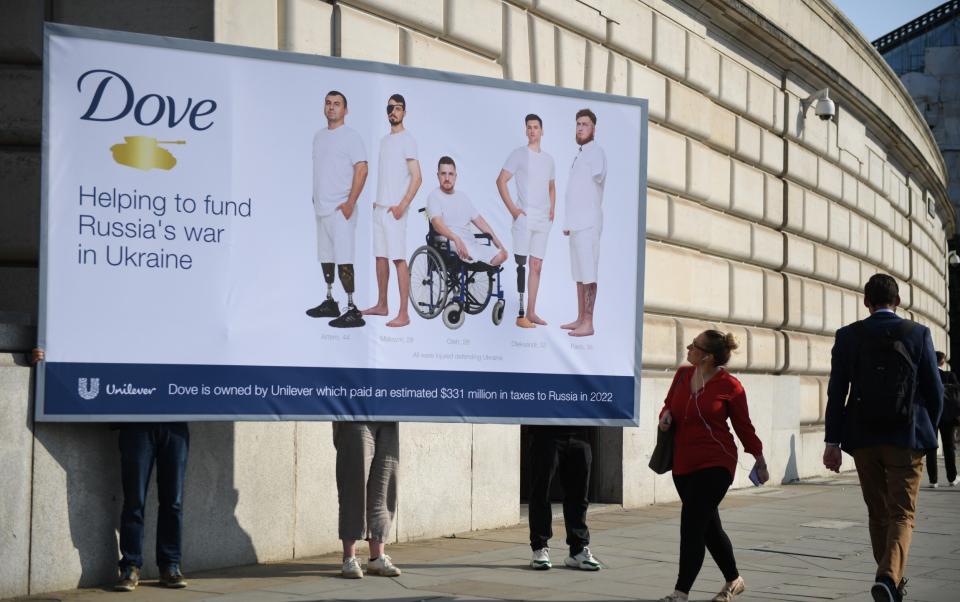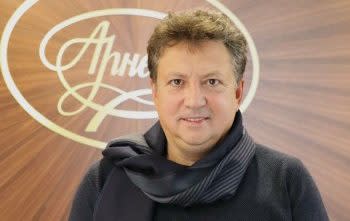Billionaire ‘hairspray king’ buys Unilever’s Russia division

Unilever has sold its Russian assets to a billionaire businessman known as the “hairspray king” for a reported €520m (£430m) after the consumer goods giant was branded a “sponsor of war” by campaigners.
London-listed Unilever, which owns Marmite, Dove and Hellmann’s, said on Thursday that it had sold its Russian subsidiary to Arnest Group, a perfume, cosmetics and household goods manufacturer run by Alexey Sagal.
Mr Sagal has proved a major beneficiary of Western companies’ exodus from Russia. He snapped up the assets of Heineken’s Russian subsidiary for just €1, alongside those of the cosmetics company Oriflame and the US aluminium can maker Ball Group at a hugely discounted price.
He is reported to have also put in a near-$800m (£600m) bid for Carlsberg’s Russian business, but that was eventually taken control of by the Russian government.
The rapid growth of his empire – which was valued at more than $1bn by Bloomberg last year – has been aided by new laws on Western assets that force them to be sold at a major discount to Russian buyers.
Born in the city of Nevinnomyssk in southern Russia, Mr Sagal ran a successful household chemicals company that eventually grew into the country’s biggest producer of aerosol products. However, he is said to have been little known outside industry circles until Vladimir Putin’s invasion of Ukraine.
Since then, his spate of acquisitions has turned him into one of Russia’s most prominent businesspeople. Shortly after he bought the assets of Ball last year, he was given a state medal by Putin for making an outstanding contribution to the Russian economy and society.

Mr Sagal’s string of knock-down price takeovers has expanded his business interests into food, alcohol and ice cream. Last year he told Bloomberg he intended to own these formerly Western assets for the long term, saying: “These are not speculative, but strategic investments for us.”
The deal announced on Thursday includes Unilever’s four factories in Russia and its business in Belarus. Unilever did not disclose the terms of the sale but the Financial Times reported that the sale was worth €520m.
Unilever was fiercely criticised by activists and campaign groups for continuing to do business in Putin’s Russia following the invasion of Ukraine in February 2022.
Unilever condemned the invasion as a “brutal and senseless act by the Russian state” and suspended imports and exports in its wake. Campaigners nonetheless accused it of effectively sponsoring the war by continuing to manufacture there and contributing taxes to the Russian government.
In July last year, protesters put up a billboard outside its London headquarters showing wounded Ukrainian soldiers posing in the style of its Dove adverts.
Hein Schumacher, Unilever’s chief executive, last year argued that staying in Russia was the “least bad” option for the company.

Nataliya Popovych, co-founder of the B4Ukraine campaign group, said: “We are pleased to finally see Unilever make the right move, even though such a decision comes two years too late.
“Depriving the Kremlin from additional sources of war financing is critical as Ukraine approaches 1,000 days of resistance against Russia’s brutal and unprovoked aggression.”
She added that Unilever’s withdrawal meant there were “no more excuses” for other big food and drink companies that continued to do business in Russia.
Western companies have faced a battle on two fronts over their presence in the country, simultaneously coming under pressure from campaigners to leave and facing the threat that their assets could be seized by the state, after Mr Putin brought in fresh powers to commandeer them in response to economic sanctions imposed by the West.
A Unilever spokesman said: “Over the past year, we have been carefully preparing the Unilever Russia business for a potential sale. This work has been very complex, and has involved separating IT platforms and supply chains, as well as migrating brands to Cyrillic.”